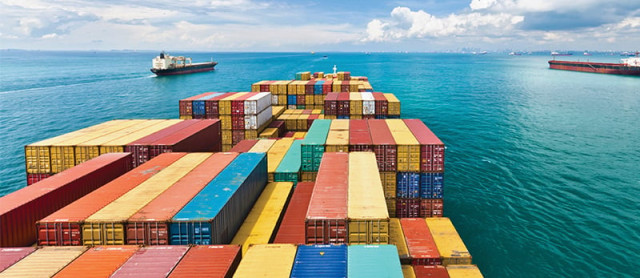Exporters lament soaring input costs
Request government to allow import of cotton, cotton yarn from India

Textile exporters have regretted that prices of cotton, cotton yarn, electricity, gas, water, labour wages, port cost and transportation charges have skyrocketed in Pakistan and demanded government’s support in this regard.
In a statement on Tuesday, Pakistan Apparel Forum (PAF) Chairman Jawed Bilwani pointed out that the cost of these amenities and inputs were affordable in all other major textile exporting nations.
He lamented that cotton and cotton yarn were sold at exorbitant prices in Pakistan despite the fact that it is an agricultural country.
“Regardless of these issues, the textile exporters of Pakistan were able to export merchandise worth $15.4 billion during fiscal year 2020-21 owing to improvement over Covid-19 front coupled with exemption granted to the export-oriented sectors,” he said. Highlighting that the textile sector held over 60% share in the total exports, the official lamented that it still lacked the government’s attention.
Owing to low Covid-19 cases in Pakistan compared to other regional countries, the value-added textile exporters grabbed the opportunity and secured lofty export orders.
“With improvement in Covid-19 situation in competing countries and soaring cost of manufacturing as well as shortage of cotton and cotton yarn in Pakistan, local exporters will face stiff competition from the regional competitors,” he said.
He was of the view that being a vital raw material for value-added textile export sector, import of cotton and cotton yarn from India must be allowed through Wagha Border. Meanwhile, the hike in freight charges is acting as an additional hurdle for Pakistan’s exporters.
“Freight cost for trade through sea routes has skyrocketed by approximately 700% and there is also an acute shortage of container vessels due to which the delivery time has increased from 45 days to 90 days,” he said. “The shortest route to import cotton and cotton yarn is from India through land and from Uzbekistan through the Afghan Transit Trade.” Governments must prioritise cotton production, cultivation area and crop yield in order to support the entire value added textile chain, he said, adding that these commodities are basic raw materials for textile export sector.
Due to decline in cotton output and unavailability of cotton yarn, the production of value added textile sector has suffered immensely.
Bilwani lamented that the spinning sector was not fulfilling the orders of cotton yarn given by the textile sector. North Karachi Association of Trade and Industry (NKATI) President Faisal Moiz Khan said that the tariff charged by the international shipping firms witnessed a four-fold increase which poses a threat to Pakistan’s exports.
He further requested the government of Pakistani to follow the example of US Federal Maritime Commission and seek clarification from global ocean carriers over drastic increase in tariff.
This way, Pakistan’s exports, imports and special textile items, which face stern competition, can be saved from unnecessary costs, he said. He cautioned that failure to act immediately would result in huge increase in exporters’ costs and trade will be impacted.
Published in The Express Tribune, August 18th, 2021.
Like Business on Facebook, follow @TribuneBiz on Twitter to stay informed and join in the conversation.


















COMMENTS
Comments are moderated and generally will be posted if they are on-topic and not abusive.
For more information, please see our Comments FAQ